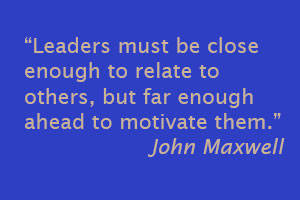 Every change comes with challenges, but the transition from peer to supervisor can be a particularly challenging adjustment. Internal promotions are critical for retaining top talent and leveraging proprietary knowledge gained on the job. But internal promotions can also result in awkward role and relationship changes for individuals who were formerly peers.
Every change comes with challenges, but the transition from peer to supervisor can be a particularly challenging adjustment. Internal promotions are critical for retaining top talent and leveraging proprietary knowledge gained on the job. But internal promotions can also result in awkward role and relationship changes for individuals who were formerly peers.
When one person on a team is promoted to a leadership position, there can be a wide range of feelings among the peers. Some will be happy because don’t have to establish a relationship with a new, unknown manager. Additionally, the promoted manager already understands the business so there is a shorter learning curve as compared to a new external hire.
However, others will have more negative emotions in response to the news. Some individuals will feel that they were more qualified and should have been awarded the position instead. Others may struggle in the adjustment from peer/friend to a manager/direct report relationship.
Here are a few ways to manage the peer-to-leader transition:
- Don’t apologize. When individuals in the group respond negatively to the news, some new leaders try to retain the “friend/buddy” role as much as possible by ensuring that nothing in the relationship will change. In many ways, they seem to apologize for being promoted and downplay the new responsibilities. This is a short-term fix for a long-term problem. While the team may be put at ease temporarily, in the end the leader will still need to make tough decisions regarding project assignments, performance reviews, pay raises, etc. Implying that nothing will change will ultimately affect the team’s trust in the long run when challenging situations arise.
- Be empathetic. While it’s important to embrace the new role and responsibilities, this is a critical time to listen and respond empathetically. Acknowledge that the change will feel awkward for a while, but take time to understand each person’s reaction to the promotion. In particular, engage with any team members who feel they’ve been overlooked in the process. As their new leader, work together to identify their career aspirations and support them with developmental opportunities so they can also continue to grow within the company.
- Step away from the friend zone. This can be particularly challenging for teams with strong interpersonal relationships. Unfortunately, new managers often feel a sense of loneliness once they’ve been promoted. They can no longer engage in conversations the same way, and they can no longer express their frustrations with their peers in the same way. It will take time to establish new comfortable professional relationships while still being friendly with the team.
- Earn respect through fairness. One common concern for team members is that the newly promoted manager will behave more favorably to their best friend on the team. Be particularly careful about being objective and fair to all team members. Be transparent about your decision-making process and communicate effectively so there is no room for speculation about favoritism.
For newly promoted managers, setting the right tone from the start will save months of heartache and difficult conversations. Over time, with effective professional behaviors and strong frontline management training, all of the initial fears will dissipate and you’ll find the comfort zone in your new role.
